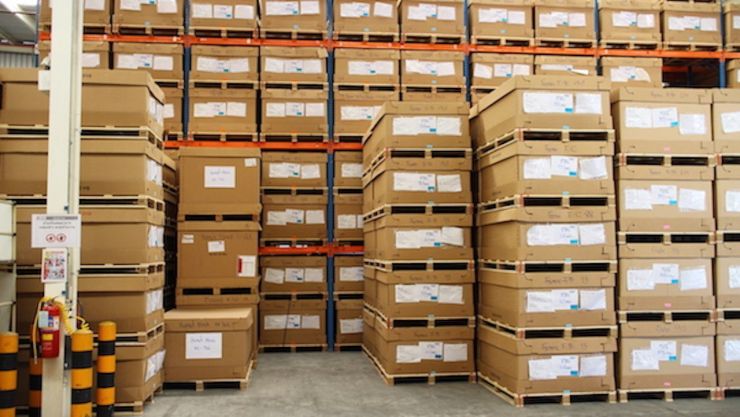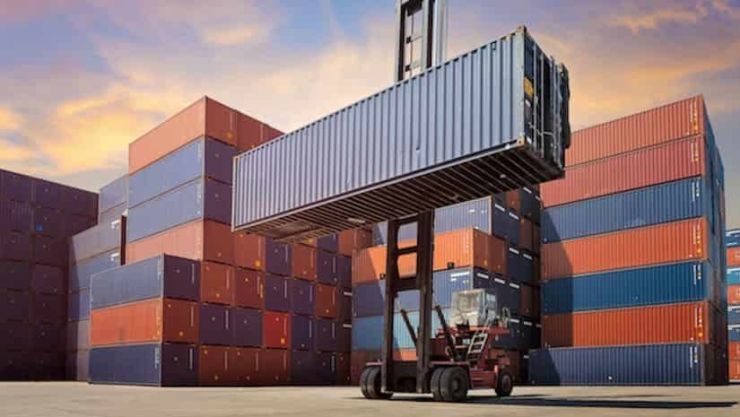Thanks to recent political developments, managing currency risk when paying overseas suppliers is more important than ever. Fortunately, a variety of tools exist to help you manage that risk, which many currency specialists are happy to share with customers.
What is an Overseas Supplier?
An Overseas Supplier is a company that exports goods in bulk to other countries. Globalization and technology have made accessing bulk goods from overseas easier than ever. These goods can range from small components that go to a larger item, such as zippers for clothing, or they could be large, whole items that are ready for purchase.
Often, buying products made overseas can be more cost effective for Western businesses, as manufacturing costs are much lower in other countries. For companies on a tight budget, engaging with overseas suppliers can be a great way to reduce a company’s bottom line.

Currency Volatility Can Waste Your Savings
Business owners import goods from overseas suppliers for a variety of reasons - the decision is not always about saving money. Sometimes specific components you may need for a product are only available from overseas factories, for example, much American manufactured denim is made with imported fabric. Other times, a company specializes in selling products that can only be imported from overseas.
Any time a business engages with a foreign country that uses a different currency, that business takes on currency risk. Currency risk is an inevitable result of currency volatility. As a currency’s value changes every minute of every day, pinpointing the exact value of a contract with a business overseas can be very difficult. Depending on the current value of your base currency (the currency you regularly use in your financial transactions) a fixed amount of money may buy you a much different volume of products one day to the next.
For example, Jane owns a grocery store in San Francisco that specializes in Japanese products. Every month, Jane orders the same amount of rice directly from a supplier in Japan. This year, when she was going through her books with her accountant, she realized that the total amount she owes every month to the rice supplier varies - even though she orders the exact same volume of rice each time, for the same price in Yen. This variance in her payments is caused by currency volatility. How much Jane pays for her rice each month is dependent on the trading value of USD - JPY at the time her invoice is due, and the exchange rate offered to her by her bank.
To learn more about bank exchange rates, click here.

Ways to Manage Currency Risk
Many businesses decide to open overseas bank accounts in the country they are importing from. This allows them to easily and quickly pay their overseas suppliers, and many believe it also keeps currency conversion costs down.
A foreign currency account can be a solution to the timing of payments, allowing faster transfers to your supplier, as a payment from a foreign currency account will be domestic. Another advantage to having a foreign currency account is the ability to engage with other local vendors, who may not have the capabilities to pay you in a currency other than their own.
While you may be paying the same amount to your overseas supplier every month from a foreign currency account, remember that you will still be exposed to currency risk whenever you transfer money to or from an account that holds your base currency. Additionally, many banks are unwilling to open foreign currency accounts for SMEs, so a smaller company will likely have a hard time finding a bank that is willing to open a foreign currency account for them.
Some businesses with regular invoices from overseas suppliers decide to take out monthly forward contracts. A forward contract effectively freezes the current exchange rate, to be applied to a transaction at a future date, which can be anywhere from 1 day to 6 months later. The contract stipulates that the forward holder can purchase currency at a specific exchange rate on a certain date in the future. The price of a forward contract is generally calculated by taking the interest of both currencies into account, the typical volatility of the currency and the current political and economic climate of the countries.
For businesses with a fixed budget who regularly pay overseas suppliers, forwards are not only a great way to mitigate currency risk, but they allow for careful financial planning, as companies know exactly what they will be spending each month. Therefore, even if the value of currency fluctuates in your favor, and you would have spent “less” money on your monthly transaction, the amount being spent has already been budgeted for, and your business is not subject to unexpected loss.

Currency Specialists Can Help Businesses
A currency specialist, or broker, can be a great resource for SMEs working with overseas suppliers. For those holding foreign currency accounts, a currency specialist can help ensure you get the best exchange rates possible when you transfer money to your regular business account, often with lower fees than offered by bank transfers. Currency specialists can also assist with forwards, regular payments and even international invoicing.
Many money transfer companies also assign a specific currency specialist to each account, ensuring you speak with the same company representative each time you have questions about your account. A representative who is familiar with your account can also help you find solutions to your currency risk challenges that address you or your company’s specific needs. To find a currency specialist that is the best fit for your company, use our comparison tool now. You can also learn more about how to send money, foreign exchange rates and even the history of money transfer with our website.








